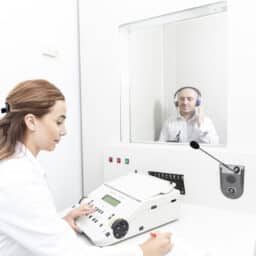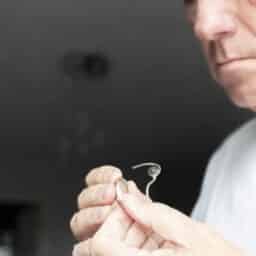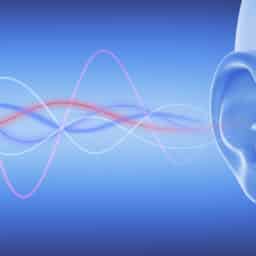What To Know About the Degrees of Hearing Loss

When you take a hearing test, your provider will read your results in terms of degrees. Degrees categorize the severity of your hearing loss based on how loud sound needs to be for you to hear it. Common categories include: Let’s take a closer look at each category to help you understand your hearing loss….
The Impact of Shingles on Your Hearing: What You Need To Know

Shingles and hearing loss aren’t generally something people group together. One pops up as a red rash, and the other isn’t visible at all. While the two conditions may not seem like an obvious pairing, some researchers have found that shingles can damage the hearing structures of the inner ear. Let’s take a closer look…
Spring Allergy Season Is Coming: Should You Start Immunotherapy Now?

Spring is finally here! Along with all the benefits of spring, like the warmer weather, flowers and Salem Saturday Market, spring also brings one downside—allergies. Spring allergies, or hay fever, affect between 40 and 60 million Americans. For some, hay fever may only cause the occasional sneeze. However, for others, it can lead to severe…
Ways to Manage Pet Allergies at Home

If you’re dealing with a pet allergy, you are not alone. Up to 30% of people in the U.S. are allergic to cats or dogs. Symptoms of pet allergies include a runny or stuffy nose, itchy or watery eyes, sneezing, shortness of breath, itchy skin, coughing and hives. Fortunately, there are several steps you can…
Study Shows Light Pollution Can Extend Allergy Season

Researchers are no longer in the dark about the effects of artificial light sources on trees and woody plants. Evidence shows that the bright lights of big cities are altering urban plants’ normal seasonal rhythms, leading to earlier and longer allergy seasons and exacerbating everything from allergies to asthma to other breathing issues. Details of…
Cancer Patients Need a Hearing Test Before and After Treatment

April is Head and Neck Cancer Awareness Month. While head and neck cancer is somewhat rare, making up just 4% of all cancers diagnosed in the U.S., one of the treatments for it (chemotherapy) isn’t. But like all treatments, chemotherapy comes with side effects—and hearing loss is one of them. Experiencing hearing loss due to…
How to Combat Dry Eyes From Allergies

Dry, itchy eyes are an unfortunate side effect of allergy season. When you encounter irritants like pollen, dust mites, pet dander or other substances you’re sensitive to, your immune system overreacts and releases histamine. Histamine is a chemical in your body that triggers the allergy inflammation responsible for dry, red or itchy eyes. Let’s take…
Tips To Keep Your Hearing Aids from Falling Out

There are several things to adjust to when you start wearing hearing aids—including making sure they stay in place. While they should usually remain in your ears without an issue, poor fit, moisture and sweat or movement may cause them to fall out. At , we recommend the following tips to help your devices remain…
Your Ears Involuntarily Perk Up Around Interesting Sounds

Bang! You slam the front door shut, and your dog’s ears move toward the unexpected sound. But did you know your ears may be unconsciously doing the same thing, just much more subtly? These involuntary, nearly imperceptible ear muscle movements are controlled by your vestigial auriculomotor system. Experts believe that the vestigial auriculomotor system is…
Ways To Manage Hearing Loss in the Home

Whether you’re hosting a large holiday gathering or a cozy dinner party, you spend a lot of time in your home. It’s important to make sure it is a safe and comfortable space, particularly if you or a loved one has hearing loss. There are a variety of steps you can take toward this goal….
“I came to be under Dr. Donovan's care during a medical emergency at the hospital. The care I received that day and in every interaction after, at Willamette ENT has been prompt, professional and very thorough. I feel very well cared for.”